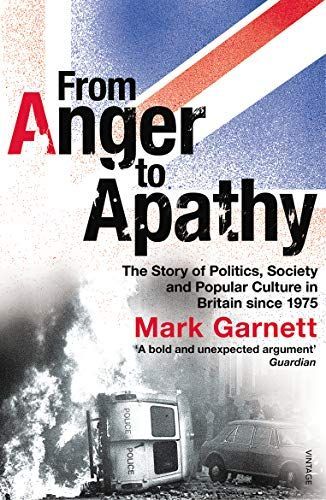
From Anger to Apathy The British Experience Since 1975
In 1975, Britons spent much of their time complaining - and for good reasons. A Labour government with a wafer-thin majority was struggling in vain against rampant inflation. Trade union officials seemed more powerful than the politicians who had been elected through the democratic process. Even Londoners now considered themselves to be on the front line of a terrorist campaign which originated in Northern Ireland. Behind all this lay a fear of a devastating nuclear war, which could break out at any time whether or not a majority of British people agreed with the cause of conflict.More than thirty years later, it is easy to see why commentators thought that Britain was becoming 'ungovernable' in the mid-1970s. Yet evidence suggests that the British people were happier in those days than they have been in the early years of the twenty-first century; they were also much more inclined to cast votes in general elections. During the 1980s Britain was certainly affected by the 'Thatcherite', consumerist ethos. But on closer inspection, it turns out that Britons are just as 'angry' today as they were in 1975, if not more so. And are they really 'apathetic', as we are being told by political commentators?In this groundbreaking new book, Mark Garnett charts the changes in British politics, society and culture since 1975. From Anger to Apathy breaks with the traditional approach to history by addressing the reaction to change through themes like lust, greed, fear and charity, while at the same time retaining a sense of chronological progression.